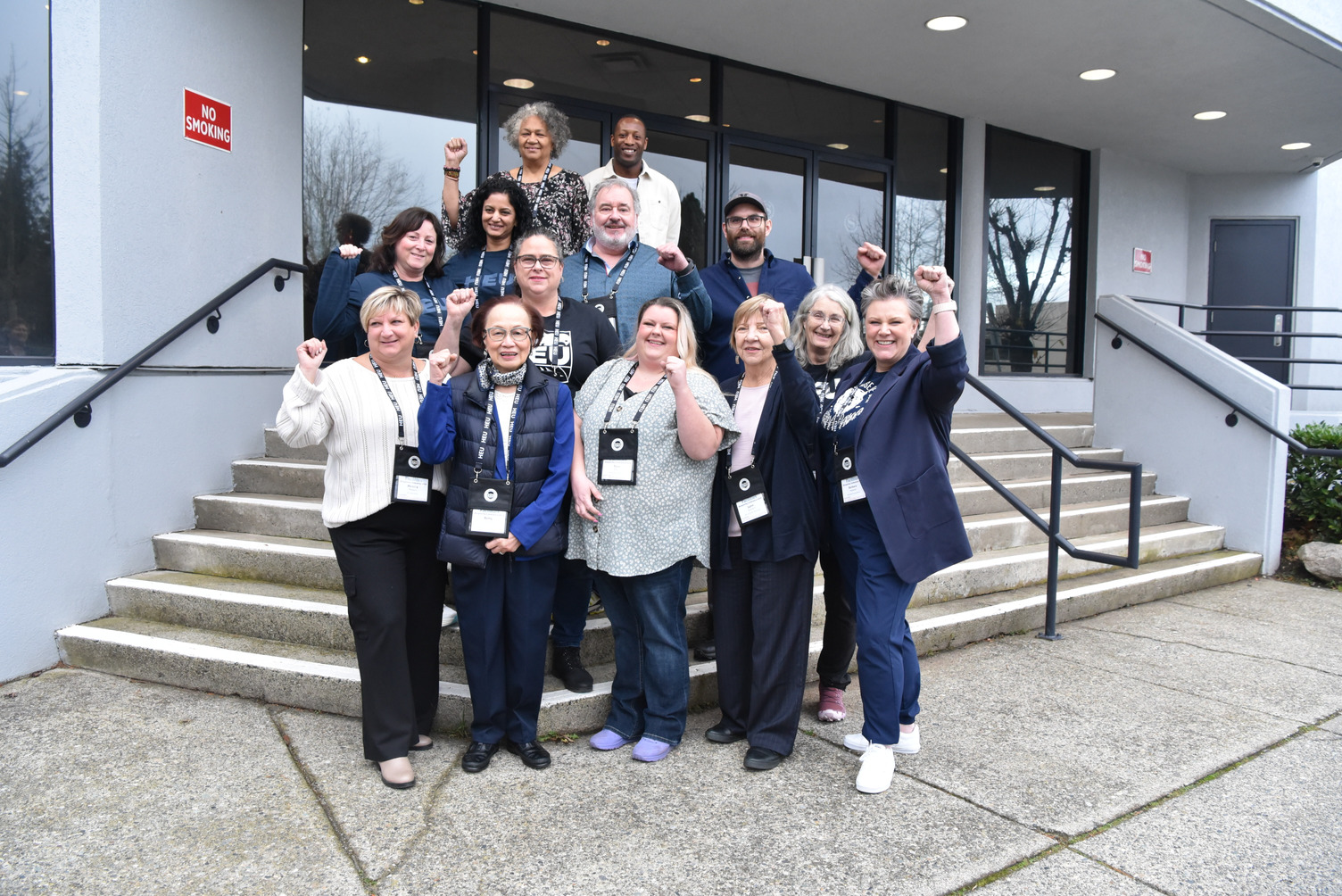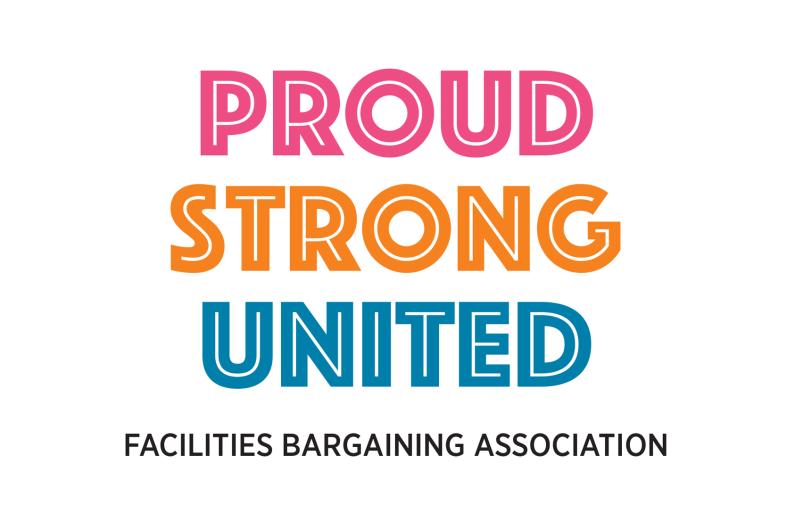Kicking off the conference, HEU President Barb Nederpel spoke about the power of collective action and the long history of the union’s role in advancing workers’ rights.
“You, the members of the Hospital Employees’ Union, are not just participants in the collective bargaining process—you are leaders in its legacy,” said Nederpel at the kick-off to the conference. “You carry the torch of those who came before you, who fought for decades to make this process possible.”
Troy Cochrane, an economist with the Canadian Labour Congress, spoke emphatically about the threat of growing corporate power. In particular, he spoke about the over-emphasis on the market as the chief tool to address societal needs and how investment in public services has a positive impact on the economy.
“While marketism is responsible for lots of bad policies with negative consequences, many of those policies have fed into the expansion of powerful corporations both by supporting that growth and by undermining important checks on corporate power,” said Cochrane during his keynote address to delegates.
On the second day of the conference, HEU Secretary-Business Manager Lynn Bueckert began the morning with her report to delegates before deliberations on bargaining proposals got officially underway.
“There are two main ways we can improve working conditions for Facilities members – increasing the number of trained health care workers to reduce current workloads, and making workplaces safer,” said Bueckert. “No matter how safe your working conditions are, if there is too much work to do, you still have a problem.”
With over 800 bargaining demands submitted, delegates spent the next two days in passionate debate on the floor. By the end of the conference, several key priorities were adopted for the incoming bargaining committee with the continued fight for pay equity emerging as one of the key bargaining proposals.
Delegates also discussed and passed demands related to workplace safety, sending a message to employers that there must be substantial commitment to protect health care workers in B.C.’s most dangerous workplaces.
Plus, delegates also clearly rejected the idea of negotiating a working-short premium. Instead, after a lengthy debate on the conference floor, they supported pushing for provisions requiring employers to fully replace absent staff and to increase existing staffing levels.
Delegates also considered several demands related to special or market adjustments for certain classification. However, after lengthy deliberations, the conference backed robust wage increases for all Facilities members as the best way to address recruitment and retention challenges.
Other bargaining demands passed included:
- Improving provisions related to the trades-qualification premium;
- Ensuring employers do not profit from workers on WorkSafe BC benefits by stopping the employer’s hold back of monies that should instead support injured workers;
- Increasing meal allowances;
- Compensating members for training, mentoring, and perceptoring;
- Improving scheduling, overtime, sick leave, bereavement leave, and vacation provisions; and
- Bolstering existing working-from-home language.
On the final day, delegates were greeted by BC Federation of Labour President Sussanne Skidmore who fired up the gathering with her recognitions of the importance of workers in society.
“Here’s the thing, without us, nothing happens,” said Skidmore. “The economy doesn’t exist without us, services don’t happen without us, health care doesn’t happen without us and communities don’t work without us.”
Following the BC Federation of Labour president’s address, delegates got down to electing their bargaining committee members.
An impressive number of delegates stepped forward to run for election and resulting in the election of a broad group of members – by occupation, regional representation, and cultural diversity – to serve as HEU’s ten representatives to the Facilities Bargaining Committee. In addition, ten other members were selected to serve as alternates to the committee.
Meet your 2025 Facilities bargaining committee members from HEU.

2025 Provincial Bargaining Committee:
Member | Position | Occupation | Local |
Jesse Winfrey | 1st Position | Cook | Cowichan Valley Local |
Barb Owen | 2nd Position | Carpenter | Royal Columbian Local |
Nikki Kowalchuk | 3rd Position | Food Service Supervisor | Vernon Local |
Chena Binns | 4th Position | Care Aide | Lions Gate Local |
MJ Brown | 5th Position | Rehabilitation Assistant | Surrey Local |
Tara Heller | 6th Position | Care Aide | South Peace Local |
Landon Beggs | 7th Position | Maintenance Worker | Victoria General Local |
Monica Thiessen | 8th Position | Clerk | Shuswap Local |
Maryann Pyne | 9th Position | Scheduling Clerk | PHSA Amalgamated Local |
Seema Loodu | 10th Position | Porter | Surrey Local |
Elected Alternates | |||
Clarissa Hicap | 1st Alternate | Food Service Supervisor | VGH Local |
Ivan Clarke-Anteric | 2nd Alternate | Maintenance Worker | VGH Local |
Karen McVeigh | 3rd Alternate | Care Aide | Dogwood Local |
Cheryl Struck | 4th Alternate | Pharmacy Technician | Kelowna Local |
Megan Wadham | 5th Alternate | Care Aide | Menno Home Local |
Daryl Roche | 6th Alternate | Programmer/Systems Analyst | PHSA Amalgamated Local |
Sam Cartwright | 7th Alternate | Activity Worker | Prince George Local |
Terry-Lynn Huddlestone | 8th Alternate | Clerk | Prince Rupert Local |
Manoj Saxena | 9th Alternate | OR Booking Clerk | RJH Local |
Kevin Dickie | 10th Alternate | Clerk | Lion’s Gate Local |
